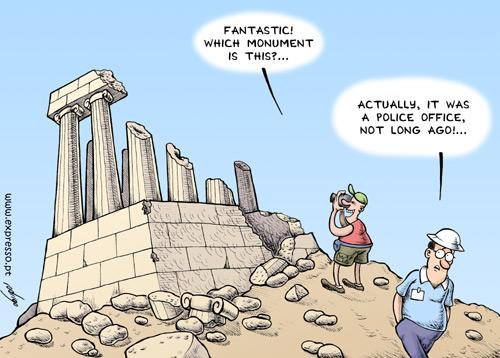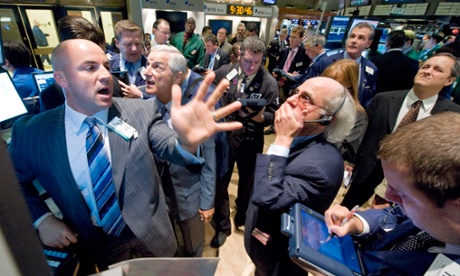-
25% The Greek economy has shrunk since its peak in mid-2008.
-
25.8% Percentage of Greeks who remain out of work, according to the national statistics agency. This means that 1.2 million people are unemployed, according to the October figures.
-
3rd The position Greece is ranked among its European partners for the percentage of population at risk of poverty and social exclusion, according to Eurostat.
-
23.1% Percentage of Greeks living at risk of poverty in 2013, according to Eurostat figures.
-
33.5% or €77 Billion ($89.38 Billion) The amount of nonperforming loans—those for which debtors have failed to make payments for more than 90 days, according to Greece’s central bank governor.
-
€70 billion The approximate value of outflows from Greek banks over the past five years, according to central bank figures.
-
83.9% Percentage the Greek stock market has fallen since 2008.
-
1 in 4 Closures of small and medium-sized enterprises since 2008, according to the Hellenic Confederation of SMEs, or GSEVEE, amounting to some 230,000 in total.
-
9 times How much more self-employed professionals had to pay in 2014 in types of taxes, according to the Parliamentary Budget Office.
-
7 times How much more in tax Greek employees and pensioners had to pay in 2014 compared with 2009, according to the Parliamentary Budget Office.
-
23% Percentage Greeks pay as value-added tax on most goods. The average VAT paid in the eurozone is 21.5%, and in the European Union 20.5%, according to the Parliamentary Budget Office.
-
100,000 The number of Greek scientists now working abroad, according to the Economics Department of the University of Macedonia.
Related Posts
- 83Facing a cash crunch, Greece is seeking to extend its bailout program with eurozone creditors before it expires on Feb. 28. Here’s what Greece owes, when. Source : http://graphics.wsj.com/greece-debt-timeline/
- 83Greek banks are running short on the collateral they need to stay alive, a crisis that could help force Prime Minister Alexis Tsipras’s hand after weeks of brinkmanship with creditors. As deposits flee the financial system, lenders use collateral parked at the Greek central bank to tap more and…
- 80Mario Draghi has set the bar high for the European Central Bank’s next meeting Thursday. The bank president’s warning about reduced inflation expectations, made in a speech on Aug. 22, fanned hopes that the ECB may announce additional stimulus measures to boost economic growth and prices. A report Friday showing…
- 78Here is what you need to know now as Greece enters a pivotal week in its testy relationship with the Eurozone: 1. Greece’s most immediate – as in first thing Monday morning – source of danger is its banking system. To compensate for accelerated deposit flight, the European Central Bank…
- 78Here is some facts about the Greek Debt The uncertainty over this week’s payment to the IMF is just the latest episode of a multiyear tragedy for Greece and its creditors as they try to navigate a situation that has been managed too timidly for too long. The biggest…






